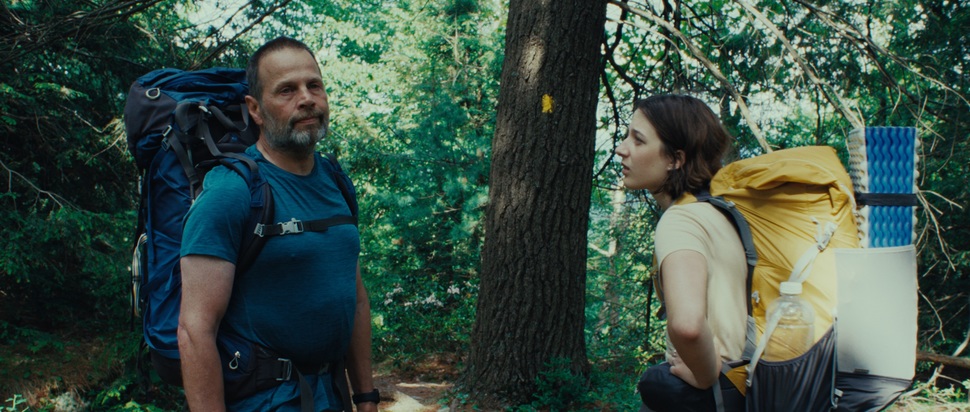Good One
The shifting power dynamics on an awkward father-daughter camping trip sit at the heart of Good One, a compelling indie drama from India Donaldson
How do children know when they’ve outgrown their parents? In Good One, writer and debut director India Donaldson shows this realisation compounded by heteronormative gender roles. The film centres around Sam (Lily Collias), a young queer woman who agrees to go on a weekend camping trip with her father, Chris (James Le Gros), and his newly divorced friend, Matt (Danny McCarthy).
Matt’s son Dylan (Julian Grady) is scheduled to go along as a youthful companion, but – still reeling from his parents’ separation – he refuses, leaving Sam the odd one out among the older bros. In the woods, she finds herself less a third wheel to the guys’ getaway and more of a crutch to their dysfunction, having to sort out directions, baggage, tent issues, encroachment of other campers on their route, and her own health almost single-handedly. Boys will be boys, after all.
The title of Good One takes on two meanings as the film progresses. On the one hand, Sam becomes the 'good one', the person responsible for the mundane administration that ensures the camping trip goes as planned; it’s not a stretch to imagine this is a role she has been cast in her whole young life. On the other hand, it’s a constant refrain to half-acknowledged anecdotes and jokes made by the two middle-aged men – 'good one' being a way to close an awkward or off-colour exchange without escalation or encouragement.
Collias astutely conveys Sam’s awkward, bitter awareness of being treated as both a child to be coddled and a burgeoning sexual being; making matters worse, she fully comprehends the immaturity of the adults in her life from the film’s opening to its conclusion (the implication being, as a queer woman, she has had to grow up much faster than those with greater privilege in the world). Sam’s journey is not that her eyes are opened to this immaturity and the failings of the adults in charge, it is that she cannot muster the power and camaraderie to change it. Collias’s eyes are enough to capture a myriad emotions, leaving Donaldson’s elegantly simple, realistic script to shine.
The semi-wilderness setting, filling the less experienced with foolhardy bravado and a desire to (pretend to) return to the basics, highlights the absurdity of outdated nature versus nurture theories. It is ridiculous to suggest people grow from experience, Donaldson seems to say, if they are never aware that they can change. Nature and nurture cancel each other out when unchallenged.
Good One is seeped in the cinematic language of American indies of the 2010s, and the quasi-mumblecore package may not work for everyone. Tonally, the lack of variety and one big moment of confrontation can be puzzling and underwhelming. This throwback approach, however, does not occlude the bitter modernity and relevance of its themes. At times a gentle character study and exercise in human foibles, at others a scathing indictment of petty cruelties and gender violence, Good One burrows into the skin like a tick picked up on the trail, deepening almost imperceptibly over time.
Released 16 May by CONIC; certificate 15
